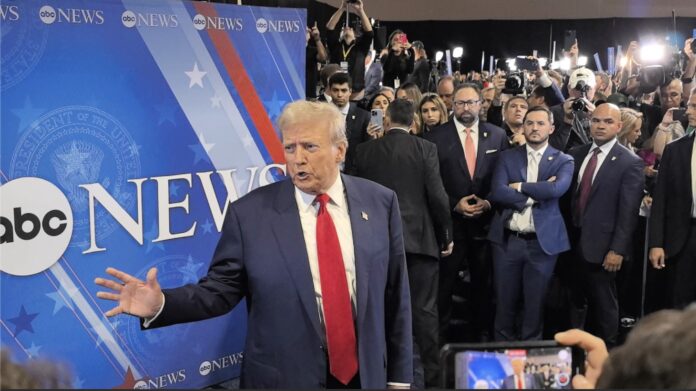A panel of three federal judges at the U.S. Court of International Trade in New York ruled on Wednesday that former President Donald Trump exceeded his legal authority in imposing a series of steep tariffs on China and other American trading partners. The court declared that the tariffs, part of Trump’s broader global trade policy, were unlawful and ordered their permanent revocation.
The decision marks an early yet significant legal setback in Trump’s ongoing efforts to reshape the United States’ global trade relationships. The ruling sets the stage for a likely legal battle that could ultimately reach the Supreme Court.
At the center of the case was Trump’s invocation of the International Emergency Economic Powers Act (IEEPA) of 1977, a federal statute designed to address extraordinary threats to the U.S. economy. Trump had used the law to justify sweeping tariffs on Canada, Mexico, China, and proposed “reciprocal” tariffs on other countries, which he announced and later suspended in April.
In its decision, the court stated that the IEEPA does not grant the president unlimited authority to impose tariffs.
“The president’s asserted power to unilaterally impose tariffs without limitation in scope or duration exceeds the authority conferred under the IEEPA,” the judges wrote. “Global and retaliatory tariffs, as imposed here, are therefore unlawful and beyond the bounds of presidential power.”
The court emphasized that, under the U.S. Constitution, the power to impose tariffs is generally reserved for Congress. Trump’s actions, the ruling said, failed to meet the legal standard of an “unusual and extraordinary threat” that would justify unilateral executive action under the IEEPA.
“Given that the Constitution clearly delegates tariff authority to Congress, we do not interpret the IEEPA as granting the president unrestricted power to levy tariffs,” the court wrote. “Instead, we find that the statute contains meaningful limitations on any such authority.”
The ruling followed two separate lawsuits filed by a coalition of U.S. businesses and state officials who argued that Trump’s tariffs had caused them severe economic harm and sparked a damaging global trade war. The Court of International Trade agreed, finding that the IEEPA “does not authorize” the president to use emergency powers as a legal basis for imposing tariffs.
In response to the decision, White House spokesman Kush Desai referenced the nation’s trade deficit and strongly criticized the court’s conclusion.
“It is not the role of unelected judges to determine how best to address a national emergency,” Desai said, adding that the administration would “use every lever of executive power to address this crisis.”

